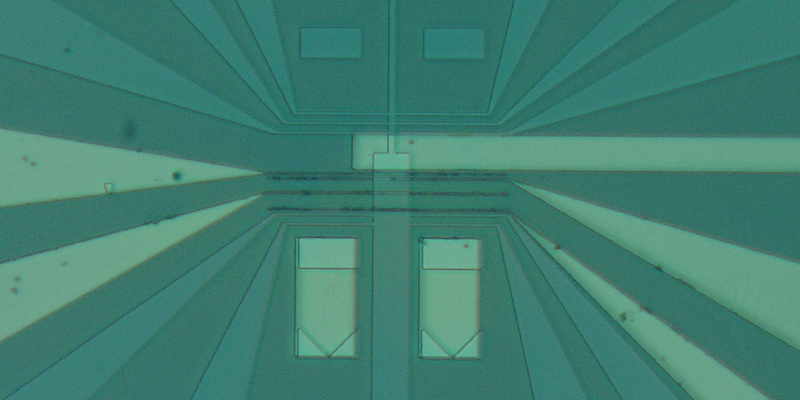
Tohoku University: A Spintronics Powerhouse
Up or Down, that's the Question
Now that traditional electronics is faced with "barriers" to Moore' Law such as excessive heat generation, the scientific pursuit for alternatives is becoming increasingly important. We had two leading lights in spintronics, namely Prof. Junsaku Nitta and Prof. Gerrit Bauer, discuss the current status of research at Tohoku University. They combine the experimentation prowess of Prof. Nitta with theoretical expertise of Prof. Bauer; together they strive to bring spintronics to an even higher level of understanding, for curiosity and in order to facilitate novel applications. Both approach that goal by looking beyond the conventional notion that the intrinsic angular momentum of the electron is digital, i.e. either up or down, since quantum mechanics allows the "spin" to point in any direction. Concrete results have been achieved, e.g., Prof. Nitta demonstrated electric (rather than magnetic) control of the spin rotation by making use of relativistic physics, while Prof. Bauer proposed new theoretical concepts such as magnetic nanostructures that can be switched by heat and may improve the efficiency of thermoelectric heat recovery.
− Prof. Nitta, Prof. Bauer, thank you for your time. Can you each provide our readers with a short self-introduction including the research now being conducted?
Junsaku Nitta: I had been a researcher after my graduate studies for Nippon Telegraph and Telephone Public Corp. (which is now NTT Corporation) in Japan. I then took on a variety of research activities related to my areas of interest in different locations, before I came to settle down here at Tohoku University. I am interested in the control of quantum states and devices, and am presently focused on spintronics. Actually I suppose I have been fascinated in "spins" since my elementary and junior/senior high school days when I was more concerned about soccer at first and then tennis, rather than studying. The difference is that now it is not a ball that I wish to exercise control over but the spin at the atomic level for materials in the smallest of all particles, the electron.
Gerrit Bauer: I followed a rather winding road to spintronics and Tohoku University. I was born in Germany, studied Chemical Engineering in the Netherlands and experimental physics in Germany again. I daresay I was also interested in the "bigger" picture, venturing out to Japan from 1984 to 1986, to conduct research at the Institute for Solid State Physics (of the University of Tokyo). Following my Japan stay I joined Philips' laboratories back in the Netherlands prior to becoming a Delft University of Technology professor. Only in my last days at Philips I was converted to spintronics and I am still devoted to the discipline today. I am now a regular professor at Tohoku University, living in Sendai (without my family like many of my Japanese colleagues), but I still maintain ties with Delft.
JN: Yes the grueling travels by Prof. Bauer in his quest for academic advances are well known amongst his friends and colleagues! In fact I am particularly glad that he can gather much information about spintronics and related research from around the world through his extensive professional network.
GB: And I am all too happy to share such information with Prof. Nitta and the other leading-edge researchers here at Tohoku University, which is renowned for its experimental research prowess worldwide. I think we can create much synergy by combining our individual fortes. Regarding my specific area of research now, I might classify myself as an applied theoretical physicist with an interest in devices. It is kind of surprising that I was more theory-oriented whilst at Philips. I enjoy working in the field of spintronics because it combines interesting physics with real-life applications. The rapid succession of new developments keeps the subject alive, recently by contributions of researchers from other fields such as phononics and photonics.



